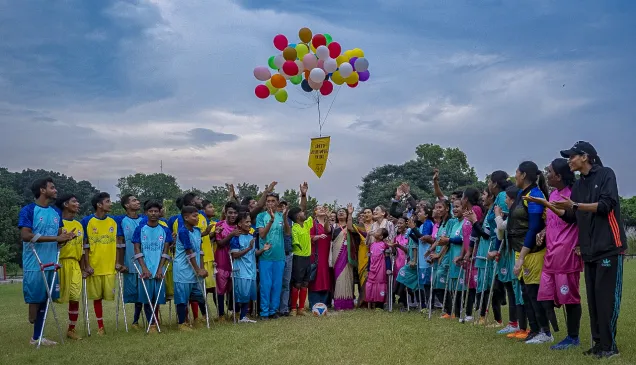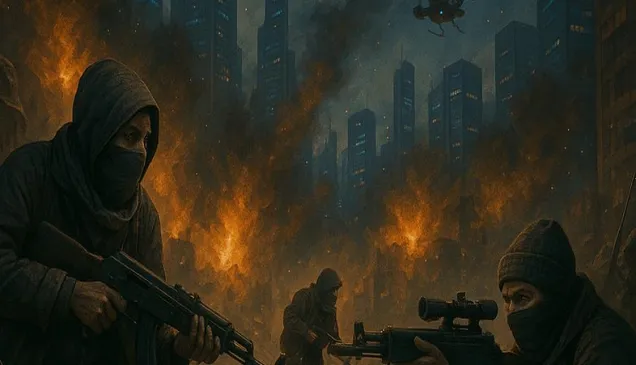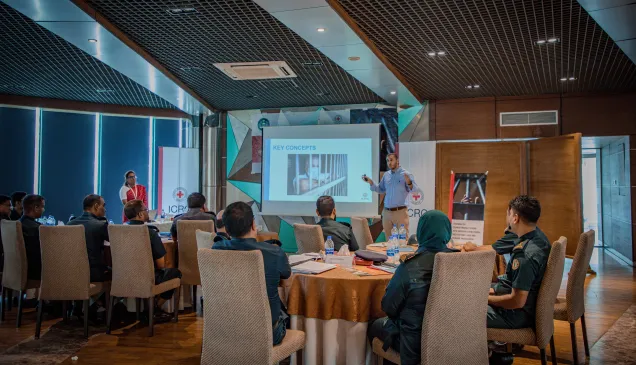Bangladesh: Challenges, achievements and our impact in 2023
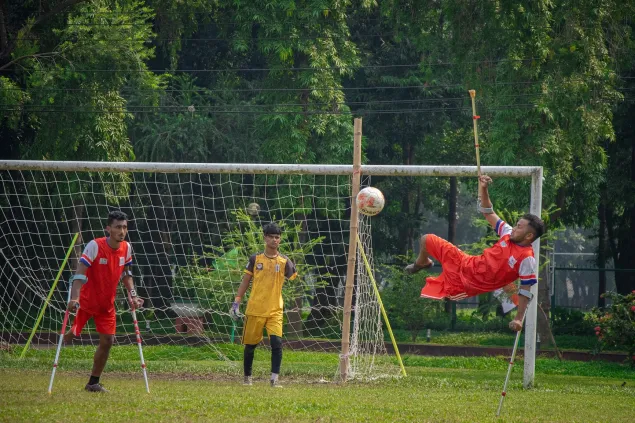
The ICRC has been actively engaged since 2013 in promoting the social inclusion of people with physical disabilities through sports. These efforts aim to change the community’s perceptions and attitudes towards people with disabilities by highlighting their remarkable abilities. To this end, we work with our long-standing partner, the Centre for the Rehabilitation of the Paralysed (CRP), and regularly organize training camps for footballers with disabilities.
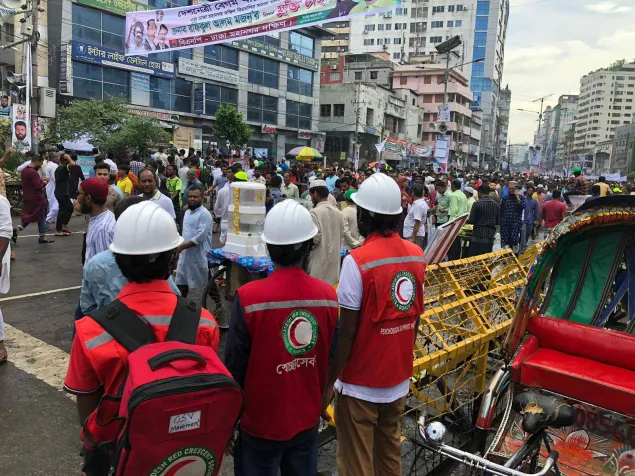
Empowering National Society volunteers in first aid:
Volunteers of Bangladesh Red Crescent Society (BDRCS) provide neutral first aid during political rallies in Dhaka as part of the efforts to effectively respond to violence and emergencies. The ICRC plays a vital role in enhancing the response capabilities of the volunteers through regular specialized first-aid training sessions. During rallies they help to provide timely care, treating injuries and saving lives.
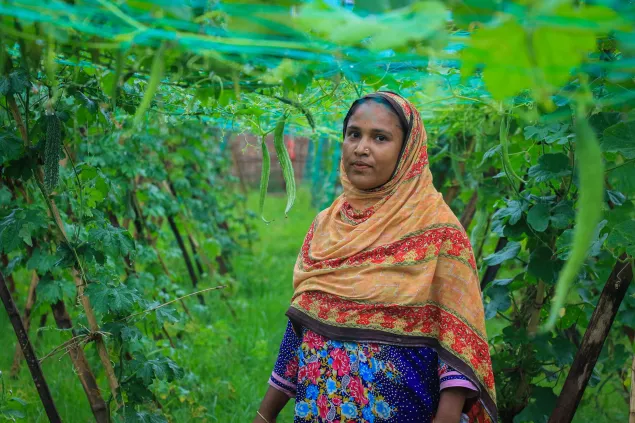
Supporting people through cash grants:
Shajeda Begum, a resident of Khagrachari, received a cash grant from the ICRC and the BDRCS. This grant helped her set up a small business of selling vegetables. With the money she earns now, she is able to support her family as well as spend on her children’s health care and education.
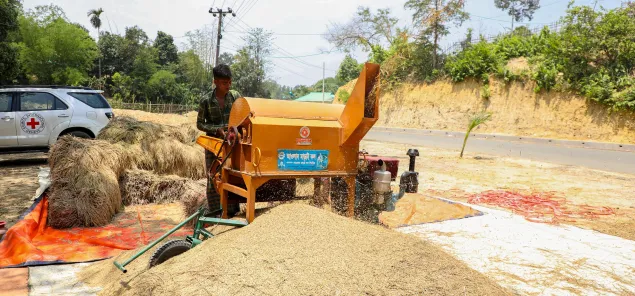
Boosting local food production:
Farmers from Ghumdhum Union in Bandarban, who could not continue their usual farming activity because of the temporary settlement of displaced people from Rakhine on their farmland in January and February 2023, received conditional cash grants. The grants helped local farmers from host communities improve their food production.
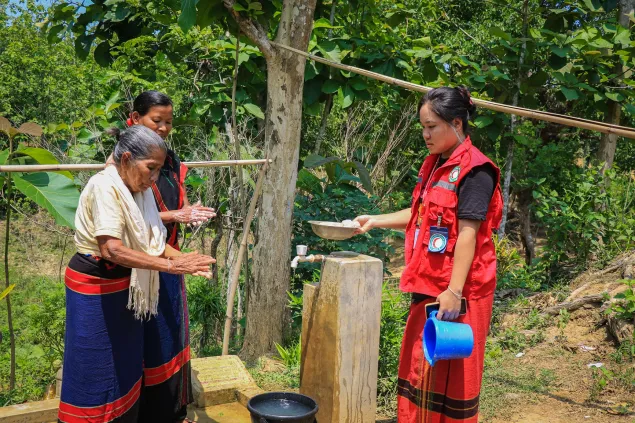
Facilitating access to clean water for communities:
Omor Bala Chakma, a resident of Langadu, Rangamati, used to struggle because of the severe water shortage in her area. The ICRC and the BDRCS helped to install a water-supply network, deep tube well and latrines, providing Omor and her community with access to safe drinking water near her home as well as sanitary facilities, leading to a decrease in water-borne diseases in her entire community.
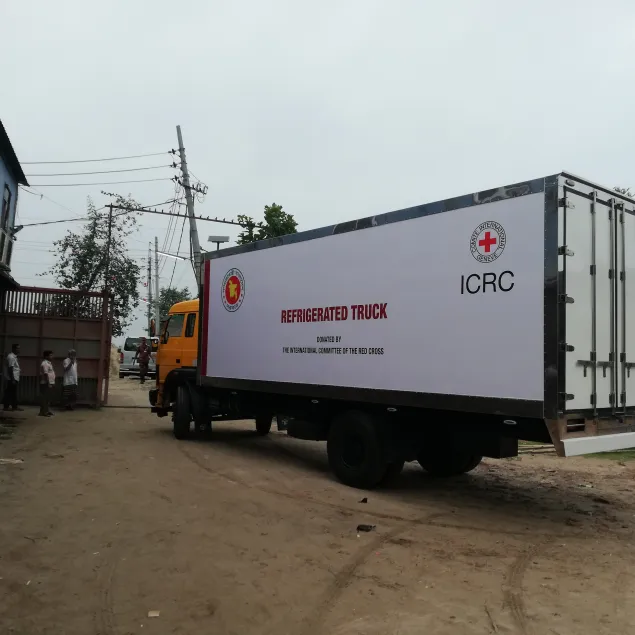
Dignified management of the dead:
Under our humanitarian forensics initiative, we helped to build the local capacity in managing human remains according to internationally-recognized best practices and data-protection standards. As part of this effort, we donated one refrigerated storage truck to the Ministry of Disaster Management and Relief for the dignified management of the dead.
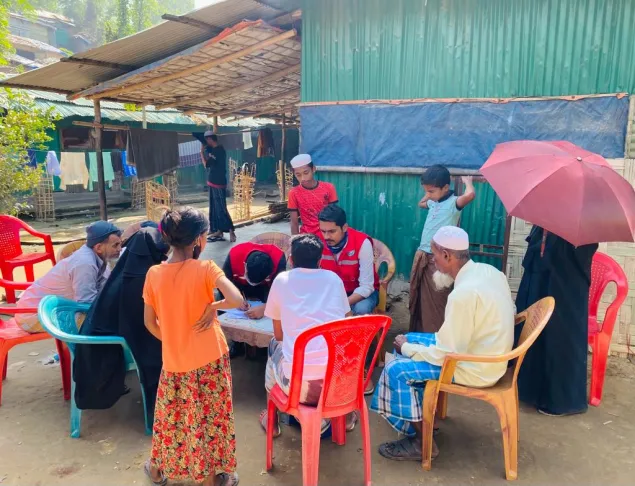
Bringing families together:
People suffer deep pain when they lose contact with their loved ones. In Bangladesh, the ICRC and the BDRCS bring hope, helping to reunite families that are separated by violence, migration, natural disasters or other challenges.
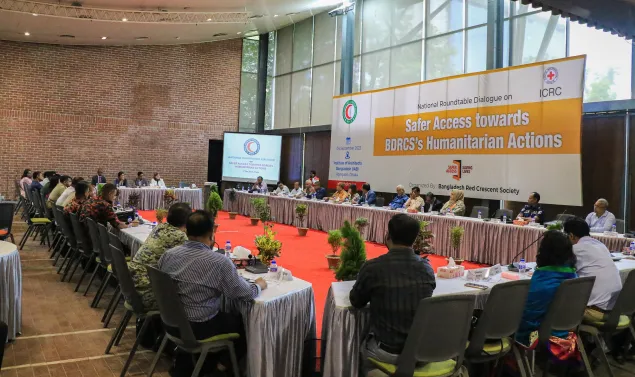
Enhancing secured humanitarian access:
We supported the BDRCS in organizing round-table discussions on safer access in Dhaka and various districts, bringing together representatives from different ministries, police and armed forces, political parties and law enforcement agencies to identify and address obstacles to enhance secure access for BDRCS staff and volunteers in the course of their vital humanitarian work.
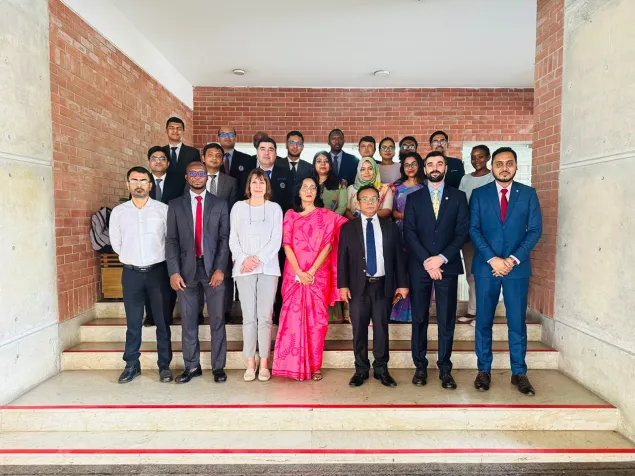
Empowering diplomats in IHL and humanitarian diplomacy:
To promote international humanitarian law, we partnered with the Foreign Service Academy (FSA) to organize a two-day course, “International Humanitarian Law and Humanitarian Diplomacy”. Through the course young diplomats engage with experts on contemporary humanitarian issues and principles.
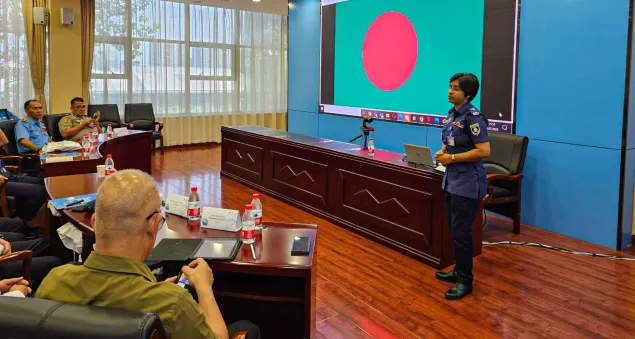
Ensuring compliance and fostering best practices:
The ICRC works in close contact with law enforcement agencies to ensure compliance with basic humanitarian principles related to the use of force and firearms, and the code of conduct for law enforcement officials. As part of these efforts, two police officers attended the Asia-Pacific Police Colloquium in Beijing, China. The officers gained insights into the challenges, lessons learned and best practices associated with peacekeeping missions.
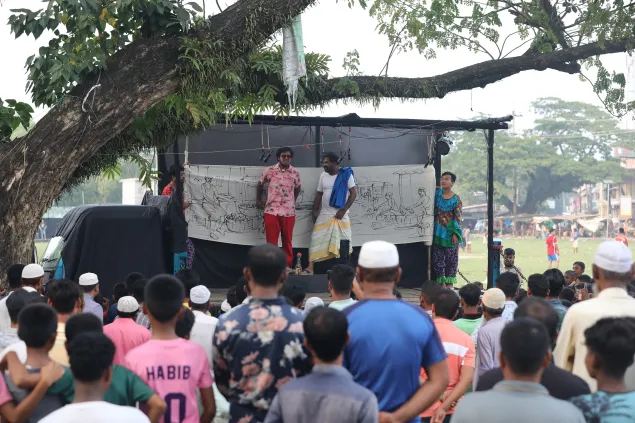
Community engagement for participation, feedback and inclusion:
Communities and people affected by crises should have access to life-saving information, participate in decisions that affect them and their feedback should be integrated in the support the ICRC provides. To achieve this goal, we regularly engaged with diverse communities, listening to their recommendations and addressing their needs and concerns through various communication channels. We also engaged with both national and international media to share experiences and discuss humanitarian issues in Bangladesh.
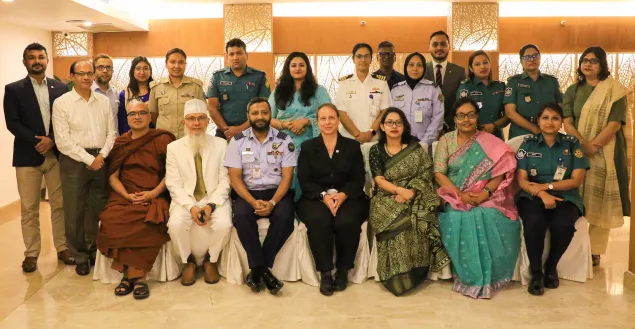
Preventing sexual violence together:
Participants from the police, armed forces, academia and religious groups in Bangladesh discussed with ICRC experts how to address and prevent sexual violence in the round table, "Preventing Sexual Violence is Everyone's Responsibility". The event marked a milestone in raising awareness and strengthening collective efforts to create a safer and more inclusive society.
In 2023, the International Committee of the Red Cross (ICRC) addressed different challenges in Bangladesh while continuing to support the most vulnerable people. The images below take you on a journey through our operations, showing important milestones and the humanitarian strides that made a difference to people's lives.
We promoted social inclusion of people with disabilities through sports, supported displaced people from Rakhine and provided cash grants to empower communities affected by violence. We also improved access to essential services such as clean water, supported farmers and built local capacity for the dignified management of the dead. Together with our partner, the Bangladesh Red Crescent Society, we helped reunite families, facilitated round-table discussions for safer access of humanitarian workers, promoted international humanitarian law (IHL) and created platforms for dialogue on preventing sexual violence.
Thank you for being part of our journey towards safer, more inclusive and resilient communities.

